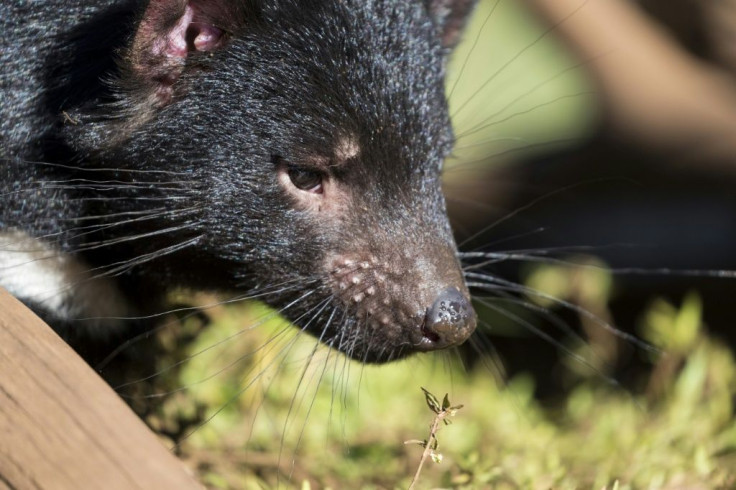Picky Scavengers? Tasmanian Devils Are Actually Selective Eaters, Researchers Find
KEY POINTS
- Researchers analyzed Tasmanian devils' whiskers for their past meals' 'chemical imprint'
- Most of them were 'dietary specialists' and had favorite foods
- The lack of competition may be behind Tasmanian devils' picky eating habits, researchers say
Scavengers usually just eat whatever is available, but Tasmanian devils may actually be pickier than others, researchers have found.
Animals that scavenge instead of hunting for food tend to have "opportunistic feeding habits" to survive, the authors of a new study, published in Ecology & Evolution, noted. As such, scavengers "cannot afford to be overly selective" about their food, the researchers noted.
Tasmanian devils are among the mammals that developed adaptations for scavenging. However, they may actually be pickier than other scavengers.
For their study, the researchers laid traps and captured Tasmanian devils at seven study sites in north-western Tasmania. They then looked at the creatures' eating habits by analyzing whisker samples. These bristles have the "chemical imprints" of the food they've eaten, the University of New South Wales (UNWS) noted in a news release. In total, the researchers looked at samples from 71 Tasmanian devils.
The researchers found that only one out of 10 Tasmanian devils actually had a generalist diet like other scavengers, meaning they eat whatever is "available and convenient." Most of them actually had a more "specialist" diet, consuming mostly their favorite foods, which varied from one creature to another.
"We were surprised the devils didn't want to all eat the same thing. Most of them just decided, 'No, this is my favorite food,'" Anna Lewis of UNSW, the study's lead author, said in the university news release. "There are no other scavengers in the world that we know of who do this."
Will sir be dining on the wallaby or bird carcass this evening? 🍽
— UNSW (@UNSW) January 11, 2022
A new study led by UNSW has found Australia's Tasmanian devils – a natural scavenger of the wild – are actually picky eaters, each with their own specific tastes and preferences.
More: https://t.co/x98VoGbEZE pic.twitter.com/yGASTRxq6r
Interestingly, the researchers found this trait in all sizes of Tasmanian devils, but even more so among the heaviest ones.
"This could indicate that mass is an important driver of diet choice or, alternatively, that dietary specialization is a more efficient foraging strategy, allowing individuals to attain a greater mass," the researchers wrote.
According to the researchers, the lack of competition may be behind Tasmanian devils' picky eating habits. Compared to other locations, such as in Africa, where creatures may be competing with other predators, Tasmanian devils' only competitors in Tasmania are fellow Tasmanian devils, Prof. Tracey Rogers of UNSW, senior author of the study, said as per the news release.
The researchers now want to find the reasons behind the Tasmanian devils' diet choices, such as whether they specifically select their food or if their choice is simply led by whatever is abundant, UNSW noted. This could help further understand scavenger diets and, in the case of Tasmanian devils, even help in their conservation especially since the species' number is already dwindling.
Threats to Tasmanian devils include loss of habitat and food availability, but the "greatest current threat" is said to be Devil Facial Tumor Disease, which is a fatal contagious cancer.
Under the IUCN Red List, Tasmanian devils are classified as "endangered." As such, finding out more about their diets could then help determine how to feed them well in captivity, according to Lewis.
"Tasmanian devils are these really cool scavengers that are doing something completely different to every other scavenger in the world," Lewis said, adding: "We're lucky to have them here in Australia."

© Copyright IBTimes 2024. All rights reserved.






















